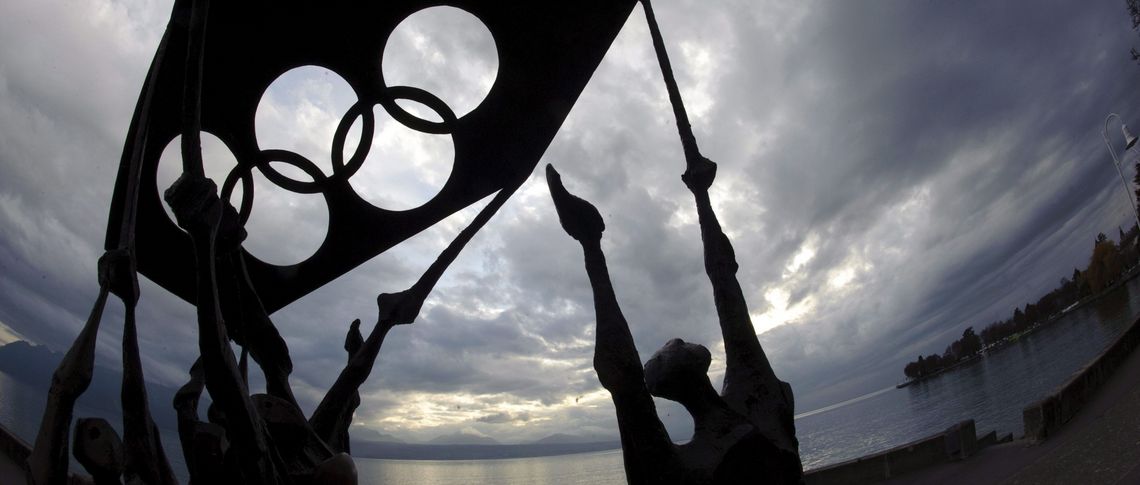Next year, the city of Trondheim in Norway will host the World Ski Championships. The official website says Trondheim 2025 is committed to transparency and sustainability. Associated issues, including diversity, were discussed in the same city at an international conference earlier this month. The event was organised by Play the Game, ‘an initiative … that aims at raising the ethical standards of sport and promoting democracy, transparency and freedom of expression in world sport’.
As in all other arenas, international sport is fraught with inequality: in terms of performance, where one comes from plays a role in determining how far one goes. Indeed, this inequality can become a life-or-death matter.
In a presentation on ‘football’s broken hearts’, the researcher Gerke Berenschot highlighted how African players were more vulnerable to ‘fatal cardiovascular events’ because they received less care. A study of international athletics by Linköping University in Sweden found that ‘European competitors had entire medical teams and computer-based analysis programmes to aid them, while the main support for young East African competitors often consisted of a family member or teacher from their home village’.
Insufficient development
Gender equality, as always, remains a casualty in the politics of international sport. It might seem like a sign of inclusivity when athletes from Afghanistan compete with their global counterparts. But Afghan women ask why the men are allowed to do so when, under Taliban rule, women cannot play. The founder-director of Girl Power, Khalida Popal, said: ‘Football was made for man by man. Women forced their entry into it. So now if there is a problem, it is seen as women’s problem, not football’s problem.’
The International Olympic Committee (IOC) has clarified that Afghan athletes will not be participating under the Taliban banner in the coming Paris Olympics. But the Taliban’s ban on women’s sports remains unaddressed. In 2022, Human Rights Watch demanded the IOC suspend Afghanistan’s participation in competitions, until the women of the country can enjoy the right to be sportspersons.
In India, an Olympic medal-winning wrestler had to announce she was quitting the sport because she and other wrestlers did not secure justice, despite a long protest against sexual abuse by a politician in the ruling party.
There is disagreement on bans: some believe individual athletes should not be penalised for their government’s actions, while others feel it is a tough step that must be taken to curb the crimes of authoritarian rulers. The issue gets more complex when athletes also take a political stand siding with these regimes, on or off the field.
In Mali, the sexual abuse of women in basketball received attention even outside the country. But the women affected had to give up on their dreams of participating in world sport or getting the chance to study abroad. The national basketball federation, instead of supporting them, tried to cover up the crime and obstruct the investigation. In India, meanwhile, an Olympic medal-winning wrestler had to announce she was quitting the sport because she and other wrestlers did not secure justice, despite a long protest against sexual abuse by a politician in the ruling party.
Even positive IOC policies, such as those on the safeguarding of athletes, only go so far. Zohreh Abdollahkhani of the University of South-Eastern Norway pointed out in Trondheim that they could not prevent the execution of athletes in her native Iran.
One problem leads to another
Hosting international games in the majority world could be a way of tipping the scales by bringing investments into host countries and freeing competitors from visa red tape. But corrupt governments can end up using the occasion to further victimise the local population, with the incoming resources lining the pockets of a few, including foreign companies involved in construction or manufacturing.
Before the Commonwealth Games in India in 2010, people were robbed of their homes and livelihoods. Evictions also took place in Rio de Janeiro when the city hosted the Olympics in 2016.
These violations cannot merely be seen as collateral damage. In fact, international organisations play an active role in deepening local inequalities. In an article for the Ford Foundation, Stefan Norgaard noted: ‘During the preparations for the 2010 World Cup in South Africa, FIFA – the governing body for international soccer – discouraged local authorities from upgrading an existing soccer stadium in a working-class neighborhood of Cape Town. The local government had wanted to modernise this stadium and invest in infrastructure in its surrounding neighbourhood because it would help reduce inequality in the city. Instead, FIFA forcibly urged and got local authorities to agree to build a new World Cup stadium in a wealthier section of the city.’
European countries face little negative spotlight when it comes to how they treat migrant workers.
At the Play the Game event, the president of the Norwegian Football Federation, Lise Klaveness, said that the issue of LGBT+ rights vis-à-vis the 2022 FIFA World Cup in Qatar was not only about taking a moral stand but also addressing a practical, safety concern when it came to protecting the rights of players. Qatar was also subject to criticism from international nongovernmental organisations over its abuses of migrant workers’ rights. Considering that Saudi Arabia is now set to organise the 2034 World Cup, activists are not sure if there will be any space for engagement and dialogue — even to bring up such problematic issues at all.
A couple of attendees in Trondheim did, however, point out that European countries face little negative spotlight when it comes to how they treat migrant workers. In the context of international conflicts, there is a larger ‘double standards’ complaint, given those in the Western sports world were quicker to show solidarity with Ukraine than with Gaza.
Europe also provides an international platform for the advertising of betting on sport. This has an impact as far as the Philippines, where people are trafficked to manage betting operations, leading even to the sexual exploitation of girls through organised prostitution. By using European clubs for their advertising, gambling companies circumvent a Council of Europe convention to avoid manipulation of competition where their activities are illegal in their home countries. Young people in Africa, too, have been sucked into the online-gambling trap.
‘We became exporters of labour’, said Brian Wesaala from the Football Foundation for Africa. ‘But now we need to become receivers of knowledge and attract investments.’
It cannot escape one’s notice that the above-mentioned organisations, making the rules for international sports, are headquartered in Europe: FIFA and the IOC are both based in Switzerland. Their location and constitution are the first indicators of an uneven playing field. With that awareness, though, there is much the organisations can do to restore balance.
Given their powers of decision-making and selection of event hosts, international sports organisations can hold participating nations accountable when it comes to human rights – including workers’ rights – in their regions. They can and should offer access to, and protection for, whistleblowers so that they can report abuses without having to go through national authorities, which provide impunity to the guilty: in the name of autonomy, local federations should not be led to believe they will not be held to account.
Beyond the big institutions, there is scope, however, for majority-world countries to come together, so they are not always ruled by the agenda of the minority world. In Kenya, Brian Wesaala is trying to do something similar through his organisation, the Football Foundation for Africa. ‘We became exporters of labour’, he said. ‘But now we need to become receivers of knowledge and attract investments.’
This is a joint publication by Social Europe and IPS-Journal






